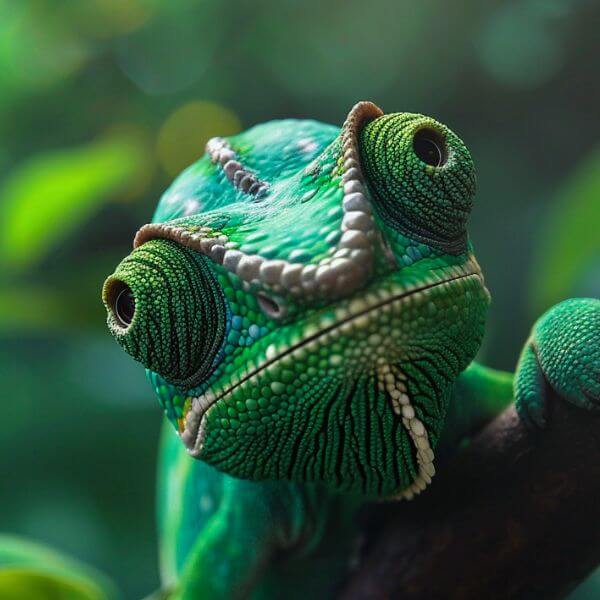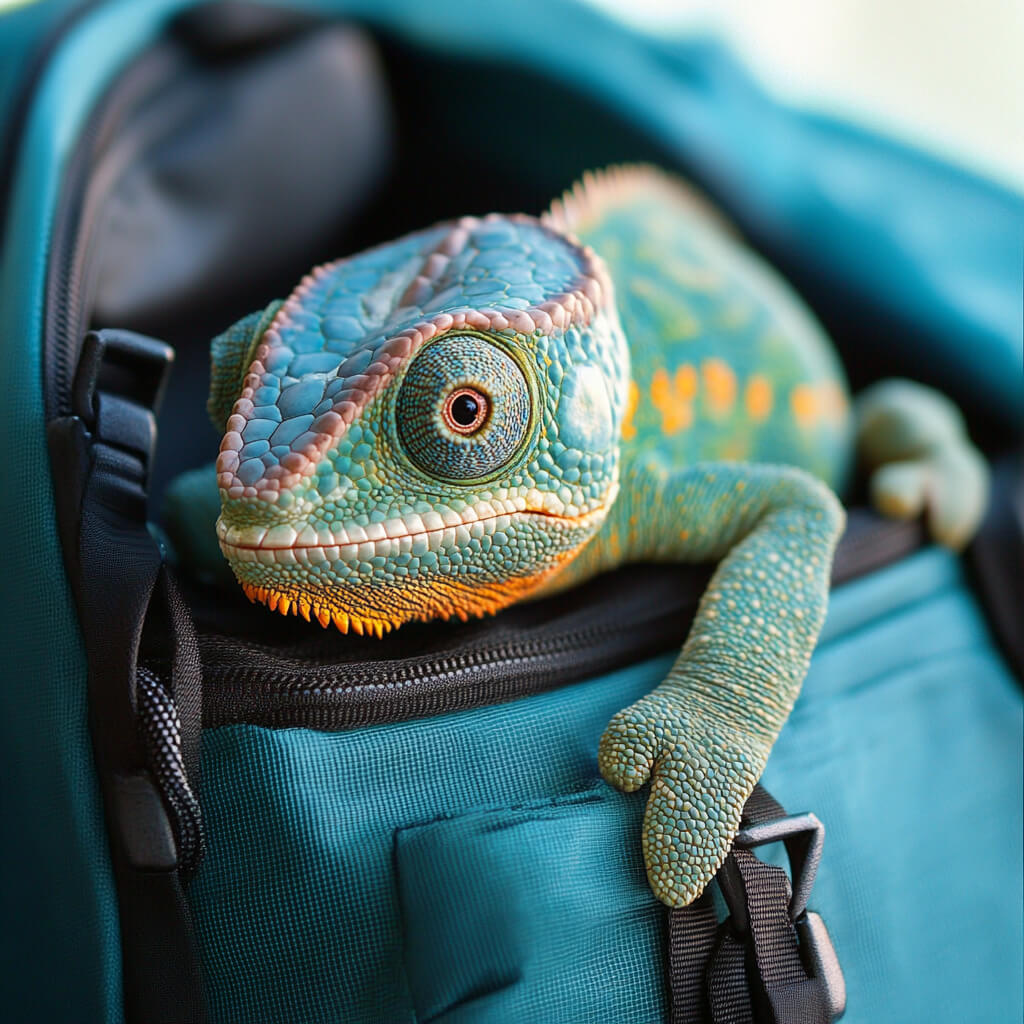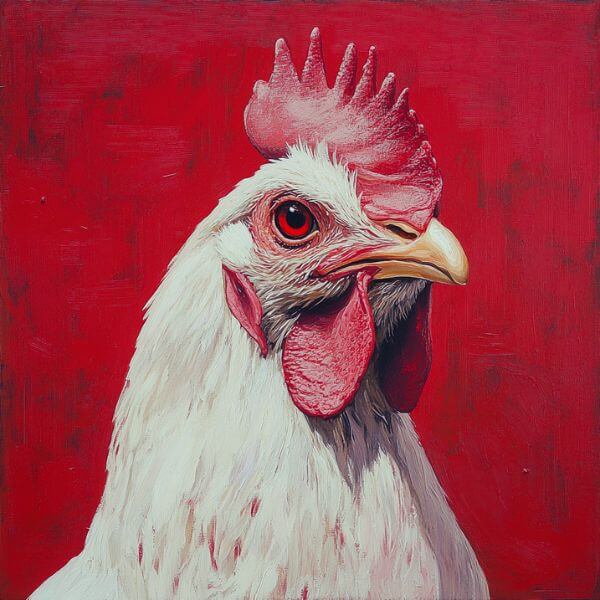Yes, chameleons eat their own poop but it’s unusual.
Chameleons aren’t known for eating their own poop on purpose.
But, and this is a big but, sometimes they might accidentally ingest small amounts when they’re catching prey or cleaning themselves.
Some animals, like rabbits and guinea pigs, do eat their poop on purpose.
This is called coprophagy. They do it to get extra nutrients. But for chameleons, it’s not a normal thing.
Risks of chameleons eating their own poop
Even though chameleons don’t usually eat their poop, if they do, it can be bad news. Here’s why:
- Parasites: Poop can contain nasty parasites that can make your chameleon sick.
- Bacteria: Just like with humans, poop is full of bacteria that can cause infections.
- Nutritional issues: Eating poop instead of proper food can lead to malnutrition.
So, while a little accidental poop-eating probably won’t hurt, it’s definitely not something to encourage!
Understanding chameleon diet and nutrition
Chameleons aren’t picky eaters, but they do have their favorites.
In the wild, these little guys feast on a buffet of bugs. Here’s what’s typically on the menu:
| Chameleon food | How much they like it |
| Crickets | ⭐⭐⭐⭐⭐ |
| Mealworms | ⭐⭐⭐⭐ |
| Flies | ⭐⭐⭐ |
| Grasshoppers | ⭐⭐⭐⭐ |
| Roaches | ⭐⭐⭐⭐⭐ |
If you’re keeping a pet chameleon, you’ll want to mimic this natural chameleon diet as much as possible.
Variety is the spice of life, even for chameleons!
Chameleon digestive system
Now, let’s talk about how chameleons turn those bugs into energy. The chameleon digestive process is pretty cool:
- Chameleon spots a yummy bug
- Tongue shoots out faster than you can blink
- Bug gets stuck to the tongue and pulled into the mouth
- Chameleon chews and swallows
- Food travels through the digestive tract
- Nutrients get absorbed
- Waste comes out as poop
It’s like a tiny factory in there!
Chameleon health and behavior
Keeping an eye on your chameleon’s behavior is super important. Here are some things to watch for:
| Normal behavior | Signs of illness |
| Bright, alert eyes | Closed or swollen eyes |
| Active and climbing | Lethargic or not moving |
| Eating regularly | Loss of appetite |
| Changing colors | Dull, unchanging color |
| Regular pooping | Diarrhea or no poop |
If you notice any of the signs in the “illness” column, it’s time to call the vet!
Proper chameleon care and habitat hygiene
Keeping your chameleon’s home clean is super important. Here’s a quick checklist:
- Clean the enclosure daily
- Remove poop and uneaten food
- Change water regularly
- Deep clean the habitat weekly
- Check for any moldy spots or bad smells
A clean home is a happy home, even for chameleons!
Feeding captive chameleons
Want to be a pro at feeding your pet chameleon? Here are some tips:
- Offer a variety of insects
- Dust insects with calcium powder
- Feed younger chameleons daily, adults every other day
- Don’t leave uneaten bugs in the enclosure
- Provide fresh water daily
Remember, a well-fed chameleon is a healthy chameleon!
FAQs
What do chameleons normally eat?
Chameleons mainly munch on insects like crickets, roaches, and mealworms.
How often should I feed my pet chameleon?
Young chameleons need food daily, while adults can eat every other day.
What does healthy chameleon poop look like?
Healthy chameleon poop is usually brown or dark green and well-formed.
Can chameleons get sick from eating their poop?
Yes, eating poop can lead to parasites, infections, and nutritional problems.
How can I prevent my chameleon from eating its own feces?
Keep the enclosure clean, remove poop promptly, and ensure your chameleon has a proper diet.
Conclusion
So, there you have it! Chameleons don’t usually eat their own poop, but it’s still super important to keep their habitat clean and feed them a healthy diet.
By understanding your chameleon’s needs and behaviors, you can be the best chameleon parent ever!
Remember, if you ever notice anything weird with your scaly friend, don’t hesitate to ask a vet.
After all, a happy chameleon makes for a happy owner!







Leave a Reply